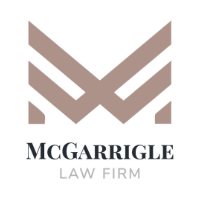Parkesburg White Collar Crime Lawyer, Pennsylvania
Sponsored Law Firm
-
 x
x

Click For More Info:
-
The Law Offices of Richard J. Fuschino Jr.
1600 Locust St Philadelphia, PA 19103» view mapCriminal Defense Protecting Your Freedom and Your Reputation
Richard J. Fuschino has been defending people against criminal charges for most of his professional career.
800-973-5371
Daniel McGarrigle
✓ VERIFIEDMilitary & Veterans Appeals, White Collar Crime, DUI-DWI, Criminal
Attorney Daniel McGarrigle is an aggressive advocate and experienced litigator; he has tried hundreds of cases and handled all types of criminal matte... (more)
Harry W. Fenton
Lawsuit & Dispute, Divorce & Family Law, White Collar Crime, Criminal
Status: In Good Standing
FREE CONSULTATION
CONTACTFREE CONSULTATION
CONTACTRichard A. Levan
Litigation, White Collar Crime, Corporate, Business
Status: In Good Standing Licensed: 37 Years
Jeremy-Evan Alva
White Collar Crime, Criminal, Personal Injury, Accident & Injury
Status: In Good Standing
Jeremy-Evan Alva
White Collar Crime, Criminal, Personal Injury, Accident & Injury
Status: In Good Standing
John Nathan Joseph
Lawsuit & Dispute, White Collar Crime, Criminal, Business
Status: In Good Standing Licensed: 38 Years
Joel A Ready
Litigation, White Collar Crime, Criminal, Accident & Injury
Status: In Good Standing Licensed: 9 Years
 Richard Fuschino Philadelphia, PA
Richard Fuschino Philadelphia, PA AboutThe Law Offices of Richard J. Fuschino Jr.
AboutThe Law Offices of Richard J. Fuschino Jr. Practice AreasExpertise
Practice AreasExpertise

